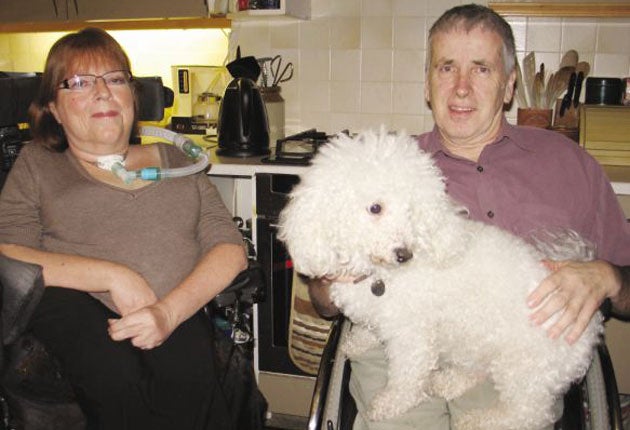Disabled have <U>no</U> right to choose carers
Campaign to protect 'dignity and autonomy' of handicapped people fails

Disabled people have no right to choose their NHS-funded carers despite complaints that current rules are robbing thousands of claimants of their "dignity and autonomy", the High Court ruled yesterday.
A case brought by a paralysed former soldier and a woman suffering from a progressive muscular disease who wanted the NHS to provide a direct grant allowing them to live independently by employing their own care staff was dismissed after a judge found that legislation prevented any such payments.
Steven Harrison, 41, who broke his neck in a diving accident in 1998, and Valerie Garnham, 60, who has suffered her condition since birth, were told in October last year that the NHS primary care trusts funding their care at home would no longer be able to do so because of an edict from the Department of Health (DoH).
The court ruling was greeted with anger by organisations representing the disabled, who warned that handicapped people were being discriminated against for "bureaucratic convenience" and pointed out that legislation allowing the payments is already before Parliament.
An estimated 150,000 disabled people in Britain receive direct social care grants from their local authorities to pay for trained staff of their own choosing. But if an individual's health worsens, meaning they need so-called "continuing care" at home funded by the NHS, then they are no longer allowed direct control of the funds and must accept whatever provision is made by their primary care trust.
Campaigners say the result is that disabled people such as Mrs Garnham, who have employed their own carers for years, must dismiss them – and are often left with unfamiliar staff from care or nursing agencies whose timetable is not decided by the patient.
Mr Harrison, from Wakefield, West Yorkshire, and Mrs Garnham, from Holloway, north London, claimed their human rights were breached by the denial of direct payments and that the legislation governing the health service meant that such funding could already be given legally.
Mrs Garnham said: "I don't look at myself as a useless cabbage that sits at home and gets withered and wizened. Is my life worth living if I'm going to stay in bed and wait for a local authority nurse to turn up? We were very proud that we actually employed five people."
Islington Primary Care Trust in north London, which pays for Mrs Garnham's care, is expected to pay up to three times the amount it paid her in the form of a direct grant to cover the cost of employing a nursing agency to do the same work.
But Mr Justice Silber, ruling in favour of the DoH, said there were no powers under the NHS Act 2006 for direct payments to patients. Lawyers for Mrs Garnham said they planned to appeal.
Join our commenting forum
Join thought-provoking conversations, follow other Independent readers and see their replies
Comments
Bookmark popover
Removed from bookmarks